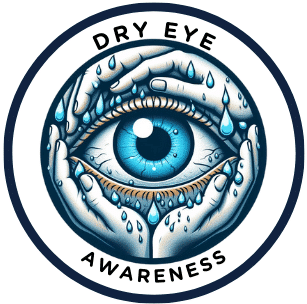
Are you frequently experiencing dryness in your eyes? If so, you may wonder, “Why do I have dry eyes?” Dry eyes can be a bothersome condition that can cause discomfort and affect overall eye health. Understanding the underlying causes can help you find relief and take appropriate measures to manage this condition effectively.
Environmental Factors That Can Cause Dry Eyes
One of the common causes of dry eyes is exposure to certain environmental factors. Air conditioning, heating systems, windy conditions, and dry climates can contribute to the evaporation of tears from the surface of your eyes. When the natural tear film evaporates more quickly, it can result in dryness and irritation. If you often find yourself in such environments, it is essential to take preventive measures. Use a humidifier to add moisture to your home or workplace air. Additionally, wearing sunglasses or protective eyewear when exposed to windy conditions can help reduce tear evaporation.
Aging And Hormonal Changes That Can Cause Dry Eyes
Our bodies undergo various changes as we age; our eyes are no exception. One of the effects of aging is a decrease in tear production, leading to dry eyes. This reduction in tear production can result in inadequate lubrication of the eyes, causing dryness, itching, and discomfort. Moreover, hormonal changes, particularly in women during menopause, can contribute to dry eyes. Estrogen plays a crucial role in maintaining eye health, and decreased estrogen levels can lead to reduced tear production. If you are experiencing dry eyes due to aging or hormonal changes, consulting with an eye care professional can help you find appropriate treatments or recommend lubricating eye drops to alleviate the symptoms.
Medical Conditions That Can Cause Dry Eyes
Dry eyes can also be a symptom of certain medical conditions. For example, Sjögren’s syndrome, an autoimmune disorder, affects the moisture-producing glands in the body, including the tear glands, leading to dry eyes and mouth. Rheumatoid arthritis, diabetes, thyroid disorders, and allergies are other conditions that can contribute to dry eyes. These conditions can affect the production or quality of tears, resulting in dryness and irritation. Consulting with a healthcare professional for proper diagnosis and treatment options is essential if you have an underlying medical condition and experience persistent dry eye symptoms.
Medications That Can Cause Dry Eyes
Certain medications can cause or worsen dry eyes as a side effect. Drugs such as antihistamines, decongestants, antidepressants, and certain blood pressure medications can interfere with tear production or increase tear evaporation. Suppose you suspect that your medications are contributing to your dry eye symptoms. In that case, it is essential to consult with your healthcare provider. They can recommend alternative medicines or adjust your dosage to alleviate the dry eye symptoms while managing your primary health condition effectively.
Lifestyle Habits That Can Cause Dry Eyes
Sometimes, our lifestyle and daily habits can play a role in developing dry eyes. For instance, spending excessive time on digital devices, such as computers, smartphones, and tablets, can lead to a reduced blink rate resulting in increased tear evaporation. Dry eye symptoms caused by reduced blinking due to excessive computer use are commonly known as computer vision syndrome or digital eye strain. Taking regular breaks, practicing the 20-20-20 rule (you should look away from the screen every 20 minutes, then at something 20 feet away for 20 seconds), and ensuring proper lighting and ergonomics can reduce the risk of developing dry eyes due to excessive digital device usage. Additionally, smoking and exposure to secondhand smoke can worsen dry eye symptoms. Quitting smoking and avoiding smoky environments can positively impact your eye health.
Nutrition And Hydration And Dry Eyes
Proper nutrition and hydration are essential in maintaining good eye health, including preventing dry eyes. Essential fatty acids, such as omega-3, are beneficial for eye health and can help reduce dry eye symptoms. Foods rich in these fatty acids include fish (such as salmon, sardines, and tuna), flaxseeds, chia seeds, and walnuts. Additionally, staying hydrated by drinking adequate water throughout the day can help prevent dry eyes. Dehydration can lead to reduced tear production, exacerbating dryness and discomfort.
Conclusion
Dry eyes can have various causes, including environmental factors, aging, hormonal changes, underlying medical conditions, certain medications, lifestyle habits, nutrition, and hydration. If you are experiencing persistent dry eye symptoms, consulting with an eye care professional for a comprehensive evaluation and proper diagnosis is essential. They can detect the underlying cause of your dry eyes and recommend appropriate treatment options. By understanding the factors contributing to your dry eyes, you can take proactive steps to manage and alleviate the symptoms, promoting better eye health and overall well-being.

Thank you for the great info. I have allergies so I think that affects my eyes. I also don’t drink enough water and now I know that can affect them too!!
Thank you very much for your comment. I am glad that you found the information in it helpful. Drinking enough water is vital for overall health and for the proper function of the eyes. Not drinking enough water can lead to dry eye symptoms, which can cause burning, grittiness, dryness, and even intermittent blurry vision. Allergies are also a condition that affects the comfort and function of the eyes and can often be present in those with dry eyes. Please feel free to frequent my website for future articles where I will discuss allergies and how they can affect your eyes, as well as additional articles on the various aspects of dry eye, its causes, and treatment options.